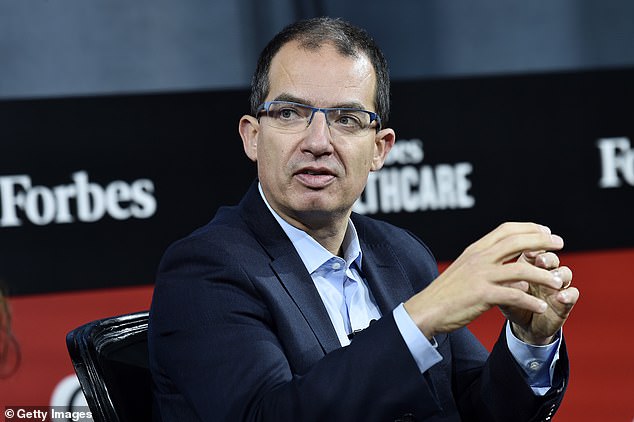Moderna's coronavirus vaccine likely prevents infection for 'a couple of YEARS,' CEO says
Moderna’s coronavirus vaccine likely prevents infection for ‘a couple of YEARS,’ CEO says as study suggests antibodies from the shot decline slowly
Moderna Inc says its COVID-19 vaccine likely protects people from the deadly disease for a ‘couple of years.’
CEO Stéphane Bancel, speaking at an event organised by financial services group Oddo BHF, said that although more research to determine how long its shot wards off the coronavirusevidence to suggest the jab works for more than a month or two.
New studies from the firm show a slow decline of antibody levels, but Bancel says the show will still be effective at preventing infection for at least two years.
It comes as the U.S. reported a record-high number of coronavirus deaths for the second day in a row and a new much more transmissible variant continues to sweep across the county.
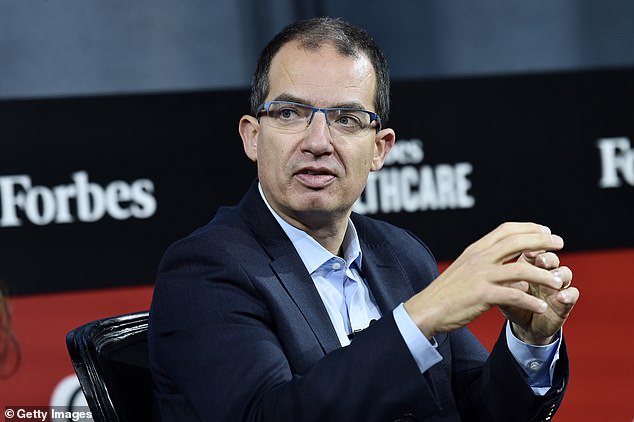
Moderna Inc CEO Stéphane Bancel said on Thursday the firm’s coronavirus vaccine will likely protect for at least ‘a couple of years.’ Pictured: Bancel attends 2019 Forbes Healthcare Summit at the Jazz at Lincoln Center in New York City, December 2019
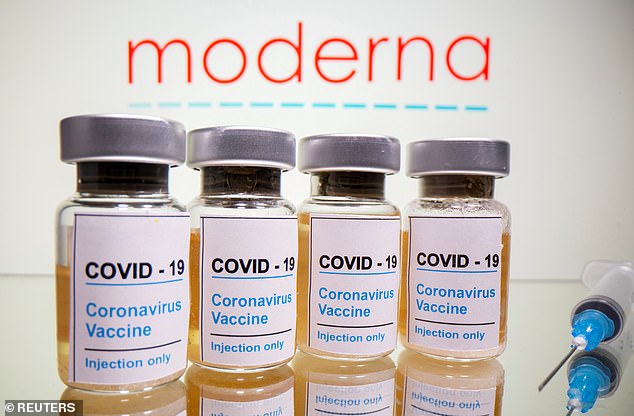
Bancel said studies from the company show that levels of antibodies against COVID-19 in humans decrease, albeit very slowly. Pictured: Illustration of Moderna vaccine
Moderna’s vaccine was developed in partnership with the National Institutes of Health.
It uses part of the pathogen’s genetic code called messenger RNA, or mRNA, to get the body to recognize the coronavirus and attack it if a person becomes infected.
The candidate, called mRNA-1273, works by tricking the body into producing some of the viral proteins, which the immune system then recognizes and builds a defensive response against.
When given in two doses four weeks apart, the vaccine was found to be 94.1 percent effect at preventing COVID-19 and 100 percent effective at preventing severe disease in clinical trial data.
Moderna’s vaccine has been authorized in the U.S. and Canada as well as by the European Commission on Wednesday. It has yet to be approved in the UK.
Given that vaccines development and pharmacovigilance usually requires years, Bancel addressed that how many scientists and regulators question the protection duration of COVID-19 shots .
‘The nightmare scenario that was described in the media in the spring with a vaccine only working a month or two is, I think, out of the window,’ he said.
‘The antibody decay generated by the vaccine in humans goes down very slowly…We believe there will be protection potentially for a couple of years.’
It comes as the new threat of ‘super-covid’ variants arises in the U.S., where at least 64 people have the variation that has triggered a third wave of lockdowns in the UK.
The new strain, known as B 1.1.7., has been identified in at least xx countries and another from South Africa is in the UK and at least seven other nations.
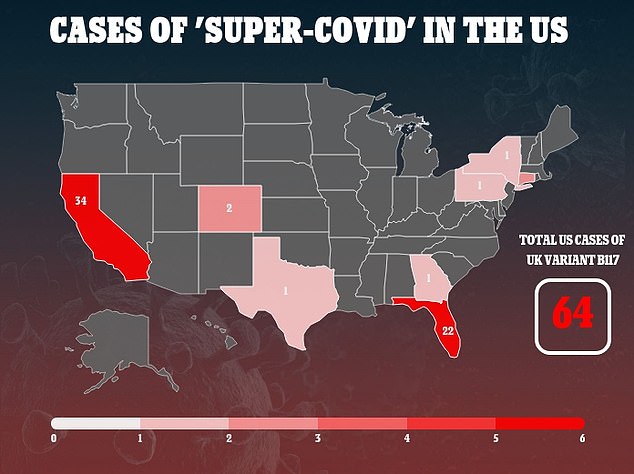
Bancel says the biotechnology company is currently working on research that will show it protects against the new variants from the UK and South Africa. The UK variant has so far infected 64 people in the US
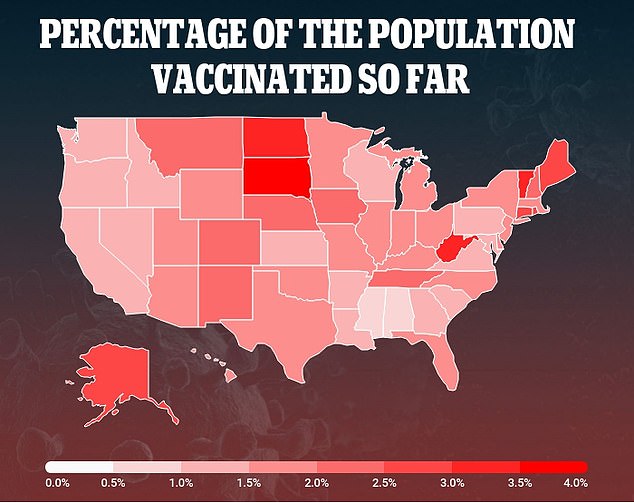
Data of the national vaccine rollout shows that just 5.3 million people have been immunized, well short of the Trump administration’s plan to vaccine 20 million people by the end of 2020
Experts believe vaccines will likely work against both variants – but at this rate, these more infectious mutant forms could easily outpace the U.S. vaccination effort if they become widespread.
Bancel said his company is currently conducting research that will prove its vaccine is effective against both variants.
In addition cases and deaths linked to the he older strain continue to surge in America.
For the second consecutive day, the U.S. set a record-high number of coronavirus deaths at 3,865, breaking the previous record of 3,775 set on Wednesday.
Public health experts say these records make it even more vital for the U.S. to speed up the national vaccine rollout after just 5.3 million people have been immunized.
That figure is well short of the 20 million people the Trump administration had hoped to immunized by New Year’s Eve.

